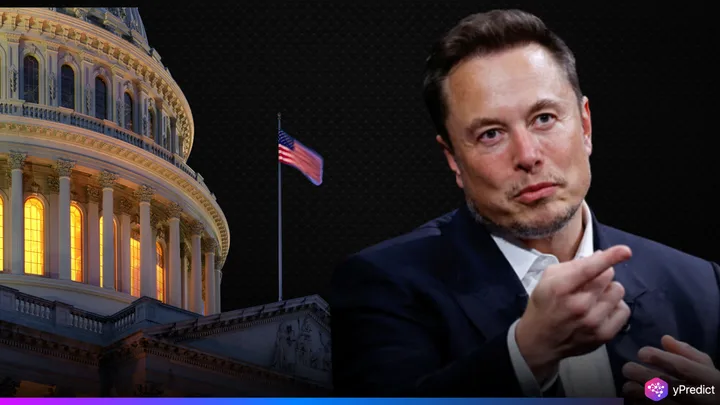
Elon Musk’s artificial intelligence chatbot, Grok, is reportedly used by his Department of Government Efficiency (DOGE) team inside the government. Three sources say DOGE staff promoted Grok at the Department of Homeland Security (DHS) without any formal approval or clearance. Privacy experts warn that this may breach federal conflict-of-interest laws and put sensitive citizen data at risk. Developed by Musk’s xAI, Grok is part of a broader push to make government operations leaner. But critics fear this unchecked use of private AI could lead to ethical violations and surveillance overreach.
How Grok Works and Why It’s Under Scrutiny
Grok is a generative AI chatbot developed by Musk’s xAI in 2023. The tool uses large language models to analyze complex data, answer questions, and generate written reports. According to one insider, the DOGE team employs a customized version of Grok to sift through massive government databases more efficiently. “They ask questions, get it to prepare reports, give data analysis,” the source said.
DOGE is a small but influential group of engineers and advisors helping Musk target waste and inefficiencies in federal agencies. Its reported use of Grok bypasses long-standing federal rules on data privacy and AI system authorization across government systems. At DHS, only pre-approved AI tools like OpenAI’s ChatGPT or Anthropic’s Claude can handle even non-sensitive data legally. DHS also built its own internal chatbot to handle sensitive work securely and remain compliant with privacy requirements.
Experts warn that using Grok outside these limits risks leaks of confidential data or misuse through xAI’s model training.
Benefits Clouded by Legal and Ethical Concerns
Supporters of the initiative argue that Grok could streamline bloated federal workflows. However, privacy and ethics advocates say the cost may be too high. Five legal experts told Reuters that if Grok accessed restricted federal databases, it might have violated federal privacy laws. Albert Fox Cahn, director of the Surveillance Technology Oversight Project, called it “about as serious a privacy threat as you get.”
Even more troubling are potential conflict-of-interest issues. Musk, as DOGE’s most prominent face and a special government employee, is limited in how he can influence decisions that might benefit his companies. If Grok’s use leads to financial gain for xAI, it could breach federal ethics laws. Richard Painter, former ethics counsel to President George W. Bush, said, “This gives the appearance that DOGE is pressuring agencies to use software to enrich Musk and xAI.”
Adding to concerns, DOGE members allegedly pushed DHS staff to adopt Grok, despite no formal approval being in place. DHS officials denied this push and claimed no staff were ordered to use any unauthorized commercial AI tools. The situation escalated when DHS suspended all commercial AI tools following reports of sensitive data misuse by employees. Now, the agency only allows staff to use its own internal AI system, with tighter restrictions in place.
Meanwhile, there are growing fears that Grok or other tools may be used for political targeting. Sources told Reuters that DOGE has tried to train AI to flag employees perceived as disloyal to President Trump. Such use of AI could violate civil service protections designed to keep federal workers free from political retaliation.
Can Private AI Safely Coexist With Public Power?
Grok’s growing presence in federal spaces raises serious concerns around ethics, legality, and national security vulnerabilities. AI tools like Grok can boost efficiency, but unchecked use inside government may risk public data and trust. Experts warn that the lack of clear rules may blur the lines between public service duties and private tech interests. As Musk steps back from DOGE leadership, watchdogs say oversight of his team’s AI use is now critical. The government must now ask: how can it harness AI’s power without sacrificing democratic safeguards or citizen privacy?






